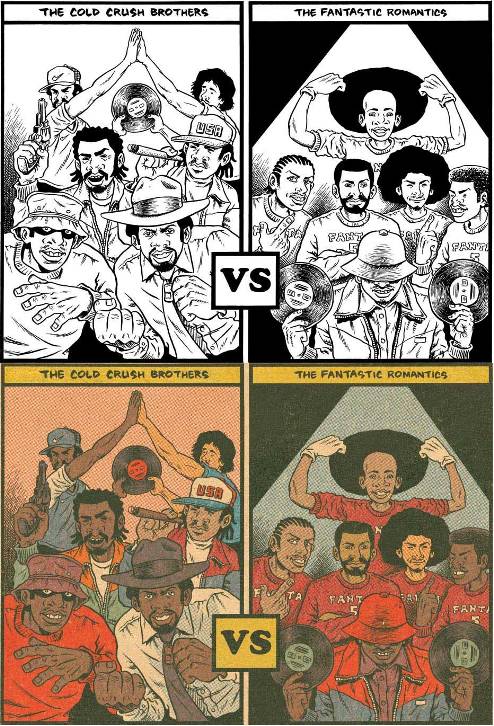Ed Piskor is the creator of the popular comic strip “Hip Hop Family Tree,” which chronicles Hip-Hop from its early days. Later this year, he’s releasing it in print form. Consider it a must-have item. link
Can you talk about what initially sparked your interest in doing such a comprehensive history of hip hop?
You see, I’m like “Rain Man” when it comes to this hip hop shit.
So I figured that to make it at least a productive thing, I’d take all that obscure knowledge and make a comic book. That way I wouldn’t feel like a complete slacker spending all this time obsessing over fucking trivia about old school rap. So, that was the impetus. I was like, ‘I already have the knowledge of the hip hop records and stuff, so I’ll just fill all the gaps in my historical knowledge by researching everything.’ Is there a particular era of hip hop that you favor?
The earliest stuff is the stuff that I most love and adore. I kind of equate those old records with standup comedy. A lot of the first hip hop records are the result of so much test marketing, I guess is the best way to put it, where these people created routines and they put them out there in front of a very hardcore audience of people who might only have ten extra dollars to spend a week for entertainment. So you’re putting on a performance to a hostile crowd. You fine tune it, and you figure out every little piece that works, and every little thing that people respond to positively, and you keep building and adding and making it better.
Then the first rap records happened, so you got these fifteen minute records of all their best material put on wax right there, and it’s all this perfectly tried and true stuff. So it’s great; it has all this heart and soul and a lot of feeling. I listen to those old rap records and literally get tears in my eyes just thinking about the situation that these people were in. You’ve got to understand what the climate was like in New York back in the ‘70s, and how all this funding was being cut from schools and there were no music departments, yet music was such a part of everybody’s lives. So what did they do? They just got together whatever they could, whatever could make some noise, and they figured out how to use that to be creative in their own ways. It’s remarkable.




